Agricultural Business in Nigeria: A Complete Overview

by Counseal Team
Updated July 22, 2024
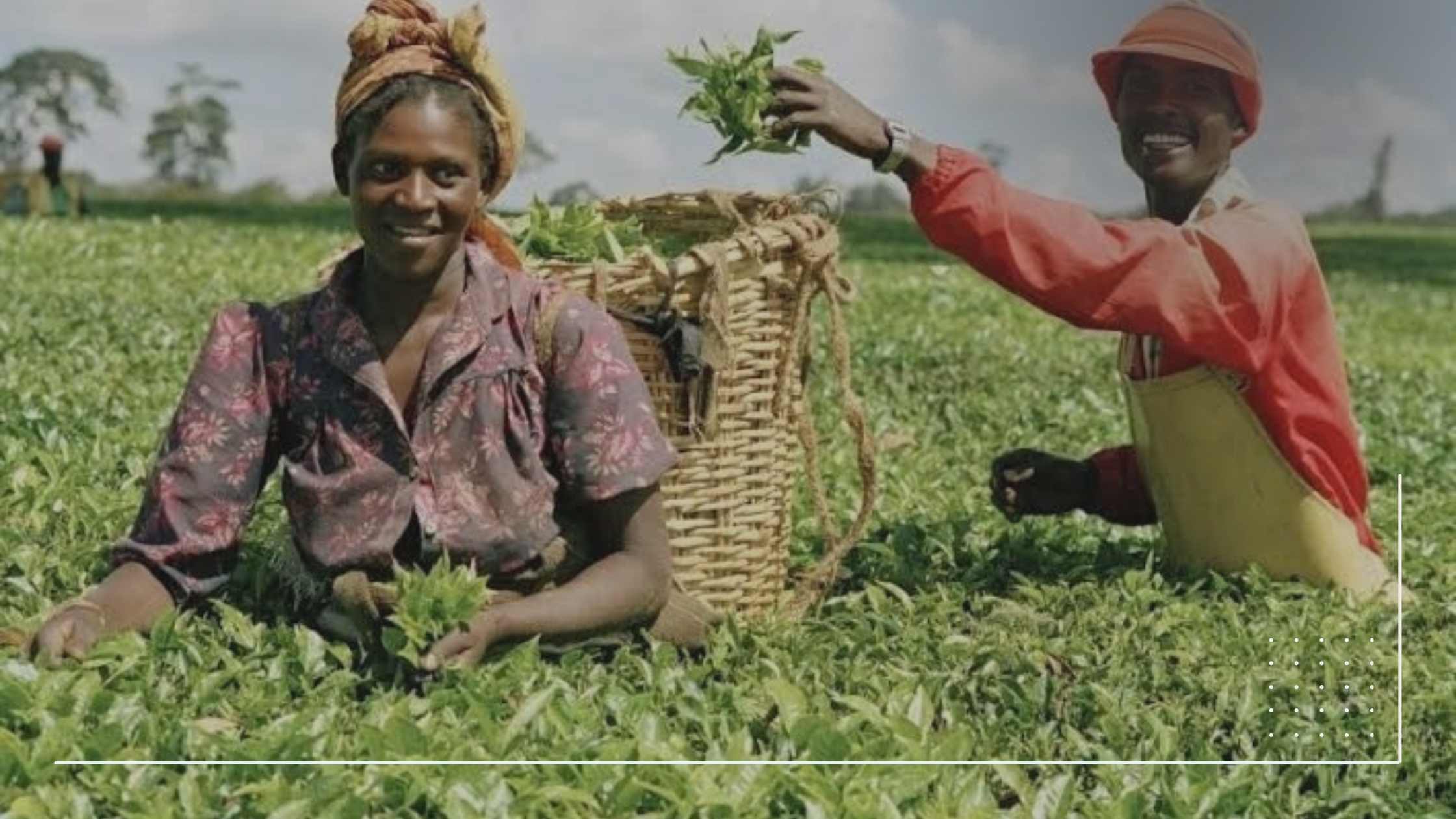
Agriculture is one lucrative sector of the economy that a diaspora investor is certain to get returns on investment. Agricultural business in Nigeria, although once on the brink of collapse and neglect, is growing into a lucrative sector because of government investments and incentives granted to this sector. The incentives granted to this sector are aimed at encouraging local, diaspora and foreign investments. This article provides a guide on the most lucrative agricultural business in Nigeria that a diaspora can invest in.
Quick Takes
How much does it cost to start this Business?
The cost of starting an agricultural business in Nigeria depends on the type and scale of the business. According to some sources, you may need at least ₦50,000 (about $55) to start a small-scale farming business, while a large-scale business may require millions of naira. Some of the factors that affect the cost include;
- Land,
- Seeds,
- Fertilisers,
- Equipment,
- Labour, and
- Transportation.
How much can you make per month?
The amount of money you can make per month from an agricultural business in Nigeria depends on various factors, such as
- Type and scale of your business,
- Market demand and price of your products,
- Cost of production and operation, and
- Level of competition.
Therefore, it is difficult to give a precise answer.
However, we can provide you with some estimates of the average monthly income of some agricultural businesses in Nigeria. These are only rough figures and they may vary depending on the location, season, and quality of your products.
Please note that these estimates are in Nigerian naira and U.S. dollars, and they are based on the exchange rate of 1 USD = ₦893.50 as of January 2024.
- Poultry farming: A poultry farmer with 500 birds can make an average monthly income of ₦150,000(about $165) after deducting the cost of feed, medication, and other expenses. A poultry farmer with 1,000 birds can make an average monthly income of ₦300,000(about $330) after deducting the cost of production.
- Cassava farming: A cassava farmer with one hectare of land can make an average monthly income of ₦100,000 (about $110) after deducting the cost of planting, harvesting, and processing. A cassava farmer with one hectare of land can make an average monthly income of ₦250,000 (about $275) after deducting the cost of production.
- Snail farming: A snail farmer with 100 snails can make an average monthly income of ₦10,000 naira (about $11) after deducting the cost of feed, housing, and other expenses. A snail farmer with 1,000 snails can make an average monthly income of ₦100,000 (about $110) after deducting the cost of production.
- Fish farming: A fish farmer with 500 fingerlings can make an average monthly income of ₦100,000 (about $110) after deducting the cost of feed, medication, and other expenses. A fish farmer with 1,000 fingerlings can make an average monthly income of ₦200,000 (about $220) after deducting the cost of production.
As you can see, there is a wide range of possible incomes for different types of agricultural businesses in Nigeria. The actual income you can make may be higher or lower than these estimates, depending on your skills, experience, and market conditions. Therefore, we suggest that you do more research and planning before you start your own agricultural business.
What is the minimum required to start this business?
As we mentioned before, the cost of starting an agricultural business in Nigeria depends on the type and scale of the business. However, we can provide you with some estimates of the minimum requirements for starting some types of agricultural businesses in Nigeria. These are only rough figures and they may vary depending on the location, season, and quality of your products.
Please note that these estimates are in Nigerian naira and U.S. dollars, and they are based on the exchange rate of 1 USD = 893.50 NGN as of January 2024.
- Poultry farming: According to one source, the minimum requirement for starting a poultry farm with 500 birds is about ₦1.5 million (about $1648. This includes the cost of land, cages, feeders, drinkers, chicks, feed, medication, and labour.
- Cassava farming: According to one source, the minimum requirement for starting a cassava farm with one hectare of land is about ₦300,000 (about $330). This includes the cost of land, seeds, fertilisers, herbicides, labour, and processing equipment.
- Snail farming: According to one source, the minimum requirement for starting a snail farm with 100 snails is about ₦50,000 (about $55). This includes the cost of land, snail pens, snails, feed, and labour.
- Fish farming: According to one source, the minimum requirement for starting a fish farm with 500 fingerlings is about ₦500,000 naira (about $550). This includes the cost of land, ponds, fingerlings, feed, medication, and labour.
What are the best states to start this business?
There are many states in Nigeria that are suitable for starting an agricultural business, depending on the type of crop or livestock you want to produce. However, based on some sources, I can provide you with some suggestions of the best states for agriculture and farming related businesses in Nigeria. These are only general recommendations and they may not reflect the current situation or the specific needs of your business.
- Cross River State: This state is rich in organic fruits and excellent for tourism. It supplies agricultural products to many other states in Nigeria. It is also known for its cocoa production, which is one of the main export crops of Nigeria.
- Delta State: This state is the third largest contributor to Nigeria’s GDP and agriculture is its second largest revenue source. It has a diverse range of agricultural products, such as cassava, rice, palm oil, rubber, fish, and poultry.
- Oyo State: This state is one of the largest cities in Africa and the fourth largest contributor to Nigeria’s GDP. It is home to many fruits and vegetables, such as African apple, guava, mango, coconut, palm oil, tomatoes, carrots, and corn. It also has a large livestock sector, especially cattle and dairy.
These are just some examples of the best states for agriculture and farming related businesses in Nigeria. You can also explore other options, such as Benue State, which is known as the food basket of the nation, or Kano State, which is the largest producer of wheat, cotton, and groundnuts in Nigeria. The key to success is to do your research, plan your budget, and choose a state that suits your passion and skills.
What are the known examples of this business?
There are many examples of successful agricultural and farming businesses in Nigeria, as agriculture is one of the most flourishing sectors of the Nigerian economy. Some of the known examples of this business are:
- Farmcrowdy: This is Nigeria’s first digital agriculture platform that connects small-scale farmers with sponsors who invest in farm cycles. The sponsors receive a share of the profits at the end of the cycle, while the farmers get access to improved seeds, fertilisers, training, and market access.
- Thrive Agric: This is another digital platform that enables Nigerians to invest in agriculture from their smartphones. The platform works with over 10,000 farmers across Nigeria and provides them with inputs, technology, training, and market linkages. The investors receive regular updates on the farm progress and returns on their investments.
- Reelfruit: This is a dried fruit processing company that produces healthy and delicious snacks from locally sourced fruits such as mango, pineapple, coconut, and banana. The company sells its products online, in supermarkets, and in vending machines across Nigeria. The company also exports its products to other countries such as the UK, US, and Ghana.
- Ps Nutraceuticals: This is a company that uses innovative technologies to improve crop yields and quality. The company has developed a product called Nourish, which is a bio-fertiliser that enhances plant growth and resistance to pests and diseases. The company also operates a network of smart farms that use hydroponics and vertical farming to grow crops in urban areas.
These are just some examples of the many agricultural and farming businesses in Nigeria. You can also explore other options, such as vegetable farming, production of spices, grains, root and tuber crops, production of flowers and ornamental plants, animal production, poultry farming, plantation agriculture, processing of agricultural products, and sales of seeds and other agro-allied products. The key to success is to do your research, plan your budget, and choose a business that suits your passion and skills.
Agricultural Business a Diaspora can Invest In.
The key to investing in agricultural business in Nigeria is knowing the most lucrative to invest in. The following are the most lucrative agricultural businesses in Nigeria to invest in:
Maize/ Corn Farming:

Investing in maize farming is one agriculture business in Nigeria that is quite lucrative. With irrigation farming, maize is planted at any time of the year and can be harvested within 2-3 months after planting.
Because of its popularity and demand for food consumption, starch and beer making, maize farming on a commercial level is highly profitable. Intending diaspora investors can obtain low interest agricultural loans from CBN to invest in this business.
These low-interest loans are offered by the government to encourage investments in the agricultural sector. The CBN also offers access to foreign exchange to investors intending to export maize maize grain outside the country.
Investment in maize farming can be done by investing in a maize farm or via an agricultural investment platform. Returns on investment in maize farming is projected at a minimum of 50%.
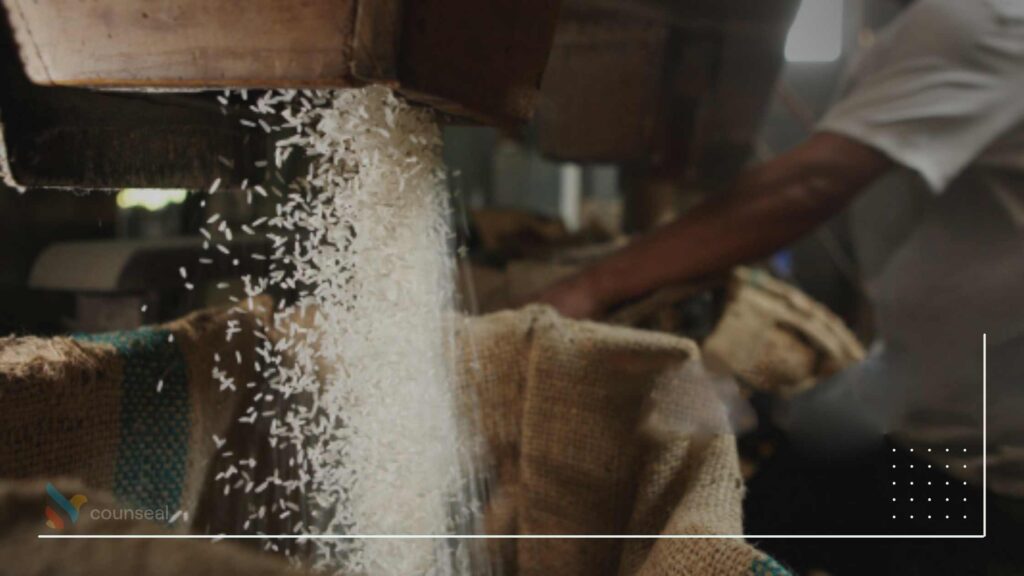
Investments in this agriculture business in Nigeria has become very popular among diasporan investors due to its lucrativeness. Rice production in Nigeria has boomed due to government policy and investments to encourage investment in this sector.
Rice production grew from 5.8 million metric tonnes in 2015 to almost 9-million metric tonnes in 2021. This was because of the government ban on the importation of rice.
Further, because of this ban, Nigeria became the largest producer of rice in Africa, hence making rice farming on a commercial level very profitable.
An investment in rice farming takes 12 months to harvest and if done properly guarantees up to 25% return on investment. Investment in rice farming can be done by investing on a commercial scale rice farm or via an agricultural investment platform.
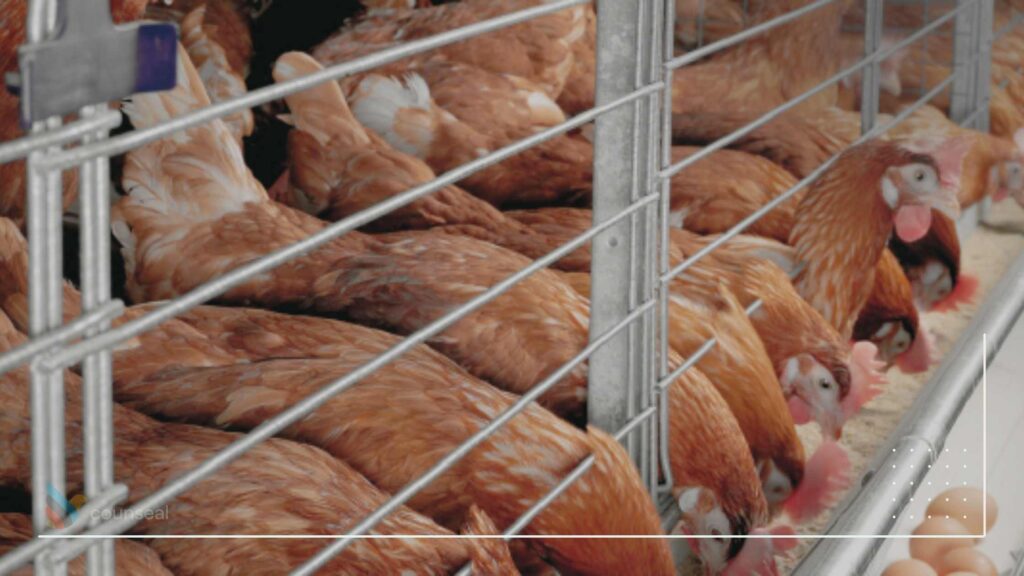
Poultry farming is the rearing of domestic birds such as chicken, geese, ducks, guinea fowls, turkeys, etc. for their meat and eggs.
Investing in this agriculture business in Nigeria is highly lucrative due to the high consumption of poultry meat and eggs. Recent statistics show that current production only meets 30% demand of eggs and meat in Nigeria for an industry valued at NGN 1.6 trillion.
To encourage investment in this sector, the government has banned the importation of frozen poultry products and the CBN offers low interest loans to investors.
A diasporan looking for a short-term investment can invest in this agricultural business and get a minimum of 30% returns on investment within 3-6 months.

Fish farming in Nigeria has evolved from traditional methods of harvesting fish to rearing fish in a water tank on land. World Bank statistics shows that 3.4 million metric tonnes of fish are consumed in Nigeria and current local production meets only 40% of consumption demand.
Because of the gap in meeting local consumption demand, diasporas are encouraged to invest in this agriculture business in Nigeria.
To encourage investments, the government banned the importation of fish in Nigeria and offer low interest loans to intending investors.
Further, by-products of fish such as dry fish, fish oil, liver oil, etc are steadily developing an international market. Access to foreign exchange is also available to investors intending to export these by-products outside Nigeria.
Investing in fish farming includes investing in a commercial fish farm or via an agriculture investment platform or renting farmlands for fish farms for a fee based on the profit made.
The return on investment is projected at a minimum of 22% returns on investment depending on the money invested.

Snail farming is a low capital-intensive agriculture business in Nigeria, valued at $12-billion dollars. Anyone including a diasporan investor can invest in this agricultural business.
Its lucrativeness can be attributed to the 100% guarantee on investment returns. Snail meat is considered a rich diet in Nigeria and when harvested and sold during the dry season can make large profits.
As snail meat is scarce during the dry season. Most state governments offer capital to diaspora investors intending to invest in this agriculture business.
Investment in snail farming can be done by partnering with a snail farmer to establish a snail farm.
Sugarcane Farming:
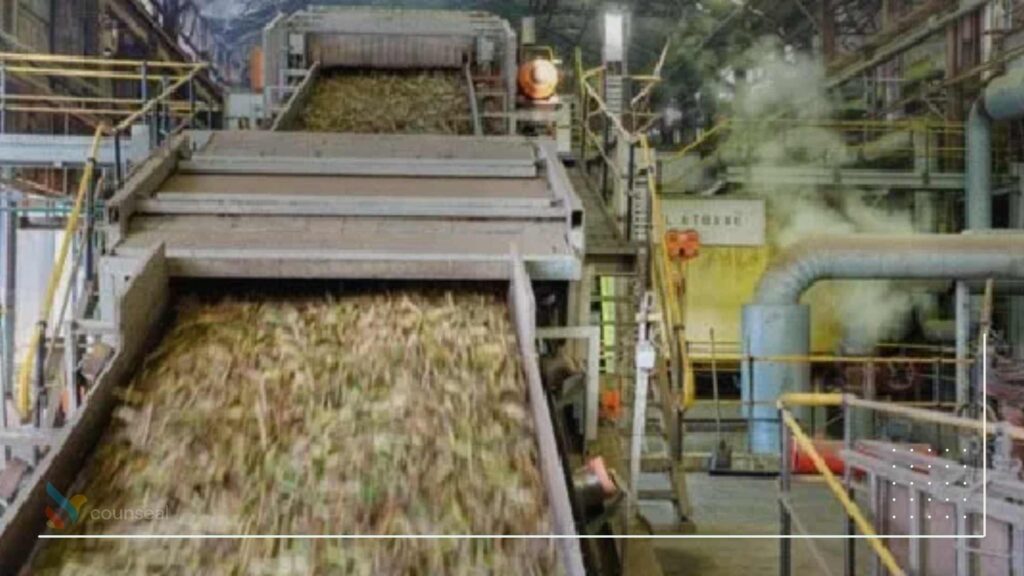
This agriculture business in Nigeria has a lot of untapped potential. Sugarcane farming on a commercial level is very profitable as there is a domestic market for sugar cane and its fibre by sugar factories, biofuel, paper, beer, renewable energy and building companies.
To reduce the importation of sugarcane and to encourage investment in sugar cane farming, a 5 years tax holiday is granted to sugar cane farmers.
Further, low interest loans are offered to sugarcane farmers and investors by CBN as well as educating them on the best way of cultivating sugarcane to boost production.
The return on investment is projected at a minimum of 25% depending on the money invested and the period of investment.
Investment can be done by investing in a sugarcane commercial farm or via an agricultural platform.
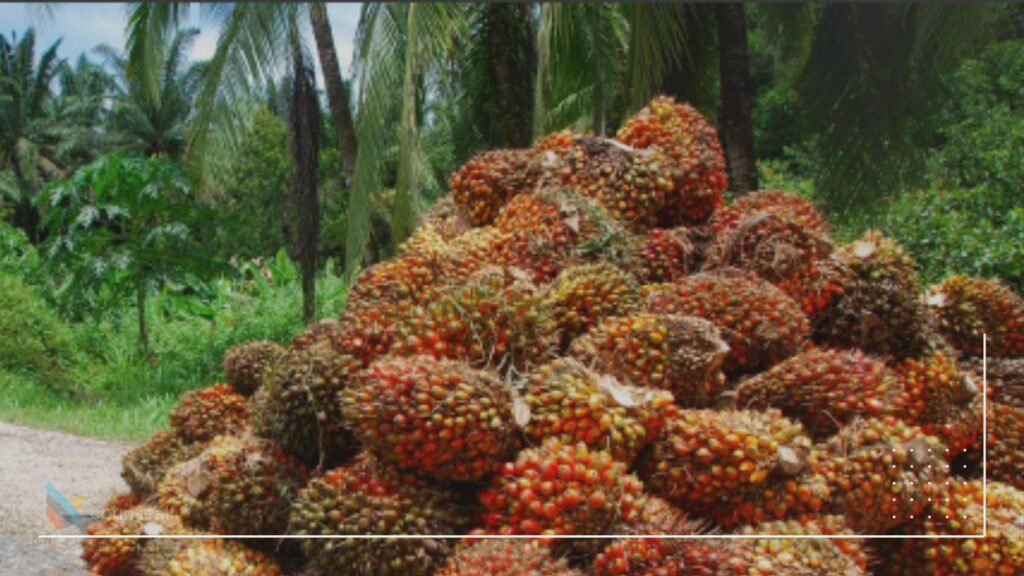
Investments in this agriculture business in Nigeria is popular among diasporan investors.
This is because of its lucrativeness from profits made in exporting palm kernel oil which is produced from palm oil farming to international markets.
Further, local consumption of palm kernel oil is very high as it is used in the production of vegetable oil, soaps, detergents, cosmetics, etc.
To encourage investments in this agricultural business, tax holidays of a minimum of two years are granted to palm oil farmers.
Additionally, low interest rate agricultural loans and access to foreign exchange are granted to diaspora investors intending to export palm kernel oil.
Investing in palm oil farming is a long-term investment as a palm tree has a life expectancy of 25-50 years and can produce palm kernel oil throughout that life span.
A diaspora investor can invest in a commercial palm tree plantation or partner with a local palm oil farmer. Returns on investment is projected at a minimum of 40% depending on the money and the time length of the investment.
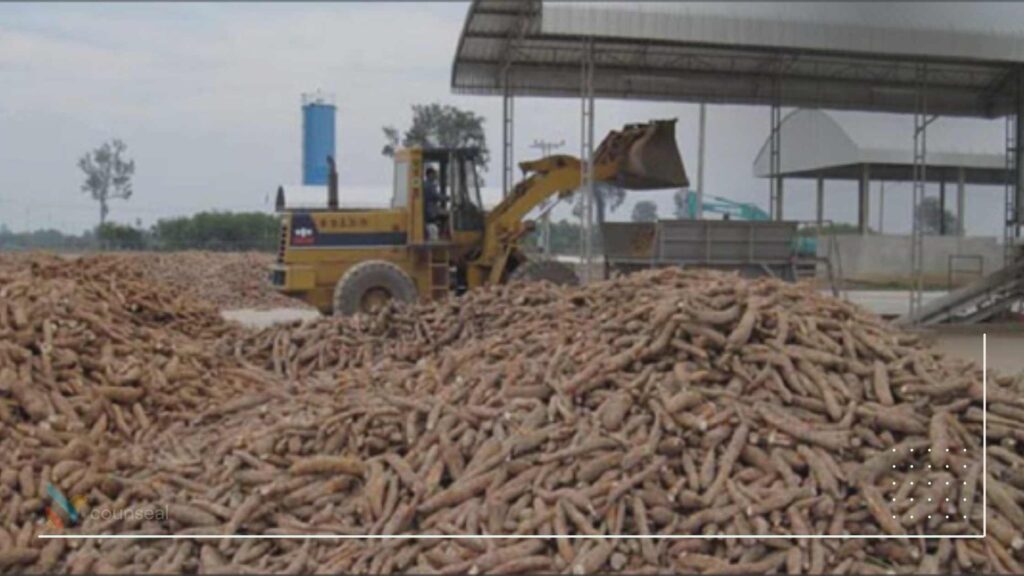
Cassava farming is known for its low input and high output nature. It is widely practiced in Nigeria as cassava is one of the widely consumed staple foods in Nigeria.
Cassava farming on a commercial level is very profitable due to Nigeria’s large domestic cassava market.
Further, Nigeria’s international market for exporting processed cassava products has grown steadily, leaving room for more investments to meet both local and international markets’ consumption demand.
Diasporan investors are encouraged to invest in this agriculture business in Nigeria to meet both local and international consumption demand.
To encourage investments, state and federal governments offer low interest loans to investors and easy access to foreign exchange for cassava farmers intending to export cassava.
Additionally, low import duties are levied on the importation of raw materials used in making local fertiliser which boosts cassava production.
Returns on investment is projected at a minimum of 22% depending on the period and money invested. Investments can be done via agricultural investment platforms or by investing in cassava commercial farms.
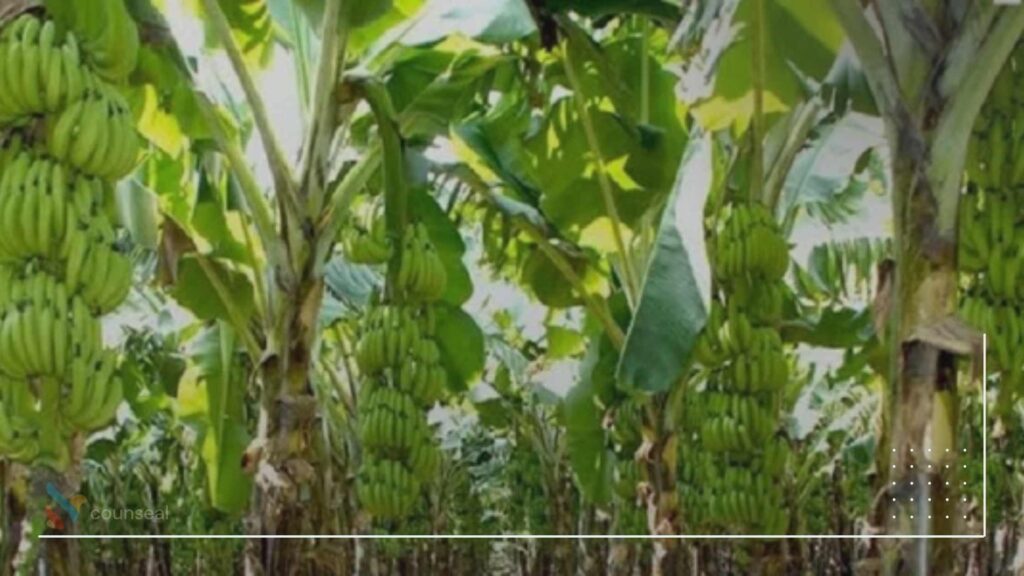
This is another lucrative agriculture business in Nigeria. Its lucrativeness is because of local and international demand for plantain and its processed products such as starch.
Plantain farming done on a commercial level can be used to meet both local and international demand. To encourage investment in this sector, the government provides access to low interest agricultural loans and tax incentives to investors and farmers alike.
Additionally, low import duties on raw materials used in local production of fertiliser used to boost plantain production.
A diasporan investor can invest by investing in commercial plantain plantation or via an agricultural investment platform or partner with a plantain farmer to build a plantain plantation.
The minimum projected returns on investment is 20% depending on the money and the length of the investment.
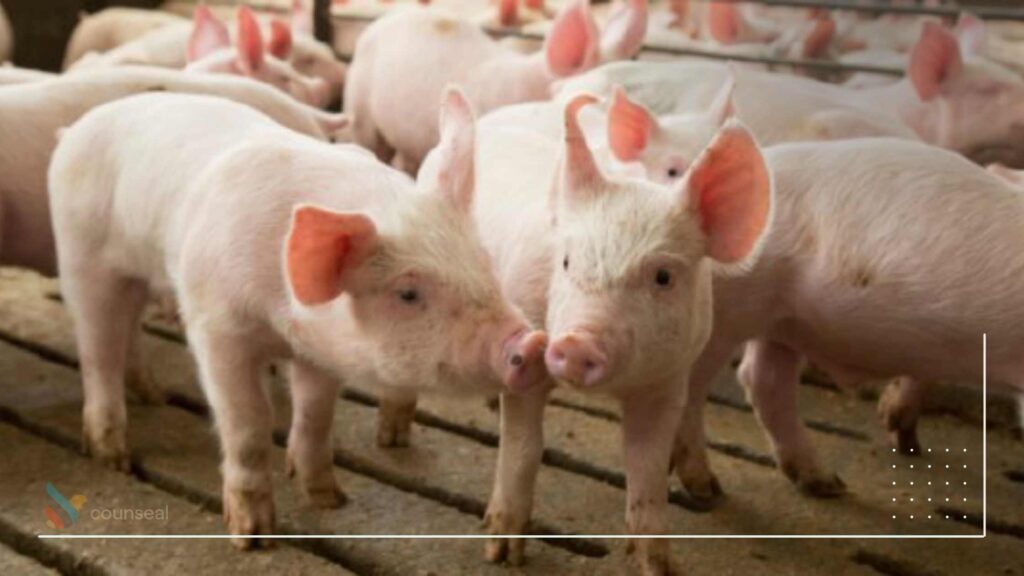
Pig Farming is also known as piggery. It is the rearing of pigs for its meats and its products. This agriculture business in Nigeria is very lucrative due to the quick and huge yields within a short period of time.
Additionally, there is a domestic market demand for pig meat and lard which is used in the production of insecticides, plastics, oil polishes, rubber, cosmetics, etc.
Pig farming is capital intensive, therefore little investments are done in this business despite its lucrativeness.
To encourage investments in this business, the government offers incentives for investors interested in pig farming. These incentives include low interests’ agricultural loans for purchasing farmlands, feed and equipment for rearing pigs.
The minimum projected return on investment is 40% depending on the amount of money invested. Investment in this business can be done by investing in a commercial pig farm or via an agricultural investment platform.
As a diaspora seeking to invest in any of the listed agricultural businesses in Nigeria is recession proof. This is because Nigerians would still eat even during an economic recession. Additionally, population growth in Nigeria is inevitable.
Hence, the increase in demand of more agricultural products to sustain the needs of the ever growing Nigerian economy.
However, it is important to point out that this article is only intended to serve as a guide and not to replace proper legal advice on investing in agriculture business in Nigeria.
If you have further questions about investing in any agriculture business in Nigeria, book a free session with an expert.



